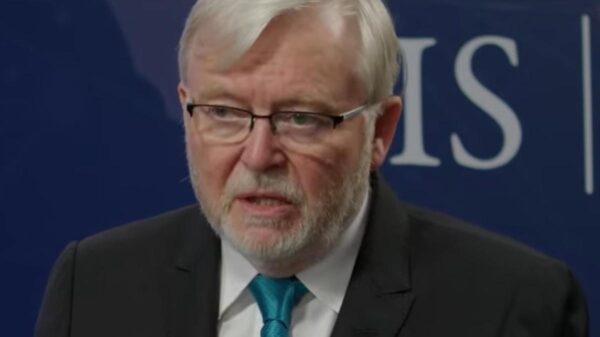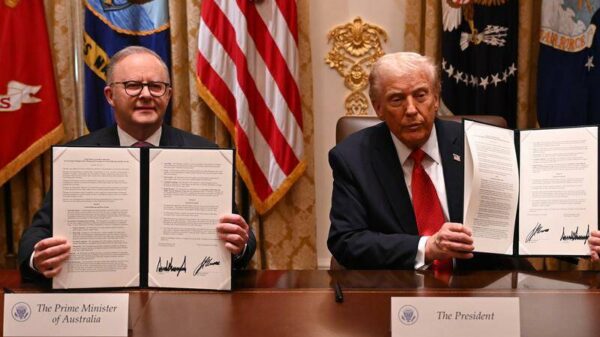UPDATE: In a groundbreaking Senate hearing on October 8, 2025, Senators Matt Canavan and Matthew O’Sullivan confronted government officials over alarming plans that could convert up to 5 million hectares of agricultural land into forests. Their revelations raise urgent concerns about Australia’s food security and the bureaucratic processes that could threaten livelihoods.
The hearing, held in Canberra, illuminated a shocking lack of data from the Department of Agriculture regarding the conversion of productive farmland into reforestation areas. Canavan pressed officials on the absence of critical figures related to land loss, asking, “Why don’t you have the number? Wouldn’t that be quite important to know?” His questions revealed that bureaucrats could not provide even basic information on how much land might be sacrificed in the name of environmental policy.
Canavan emphasized that the government’s own projections indicate the need for 5 million hectares of land for carbon offsets, roughly the size of Tasmania. “Even at the absolute maximum rate of sequestration, you’d still need around 5 million hectares,” he warned, highlighting the stark reality that could unfold within a generation if these policies are enacted.
“This is a major concern in rural Australia,” Canavan stated, pointing out the potential for reduced output in country towns and greater risks to employment and community viability. The silence from department officials spoke volumes about their inability to address these critical issues.
O’Sullivan, representing Western Australia, also raised alarms about the government’s transition plan for the live sheep industry, a move that could devastate local agriculture. He revealed that only $30 million of the intended $139.8 million transition assistance package has been spent, with a significant portion going to bureaucratic overhead. “If an impacted farmer’s livelihood has been placed at risk by the government’s policy, how is it fair that they’ll have to fork out up to $75,000 of their own money to receive some assistance?” O’Sullivan questioned, exposing the inadequacies in the government’s approach.
The Senators’ fierce interrogation revealed a disturbing pattern of bureaucracy overreach, where essential details about land use and food security are overlooked. Canavan’s “Tasmania Test” highlighted that the bureaucratic models lack transparency, effectively showcasing the disconnect between policymaking and real-world implications for farmers.
O’Sullivan’s relentless pursuit of accountability also unearthed further bureaucratic failures, such as a $1.7 million contract for a Transition Advocate who had minimal contact with the Minister over eight months. “These producers didn’t buy into this change. It was imposed on them,” he asserted, resonating with farmers who feel sidelined by government decisions.
The exposure of these bureaucratic oversights has sparked outrage among farmers and stakeholders in the agricultural sector. The Senators collectively represent a voice of reason amidst a rapidly changing policy landscape that many fear prioritizes environmental ideals over agricultural realities.
As pressure mounts on the government to clarify its plans, Canavan and O’Sullivan stand firm as watchdogs, demanding accountability and advocating for the interests of rural Australians. Their efforts underline a critical need for transparency and data-driven policy, as the stakes for food security and farmer livelihoods have never been higher.
The implications of these hearings are profound and resonate beyond the Senate chamber. With agriculture facing unprecedented challenges, the need for informed, responsible policymaking is urgent. As these developments unfold, the agricultural community and stakeholders nationwide must remain vigilant, demanding clarity and action from their representatives.





























































